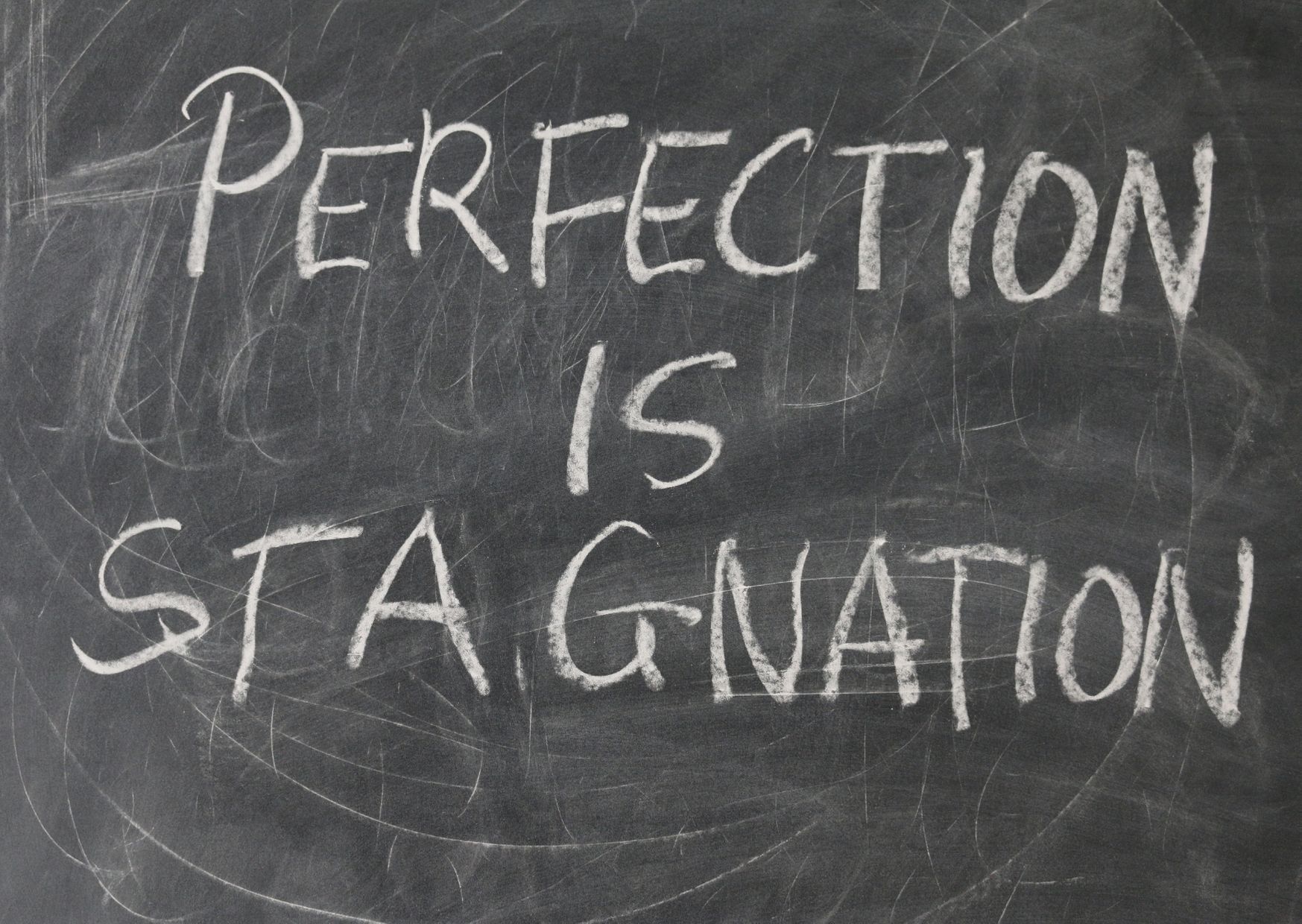PERFECTIONISM and PRODUCTIVITY
Do you also deal with perfectionism in the workplace, which sometimes causes you to miss a “deadline”? Or do you prefer to submit your work in time, even though it is not 110% done?
We are also wondering what is the better choice and how to deal with excessive perfectionism.
But what does it actually mean to be a perfectionist?
These individuals set themselves very high goals that are often unrealistic and hard to reach. Because they are very difficult and almost impossible to achieve, they often feel guilty, inadequate and like a failure, which can lead to low self-esteem and the development of depression and anxiety. Above all, striving for perfection can not only lead to people having high expectations of themselves, but also of others. The negative aspects of perfectionism are thus detrimental to one’s health, self-image, and relationships with others. It is characterized by high personal standards, rigid insistence on reaching goals, fear of failure and critical self-assessment. Perfectionism can lead to workaholism, which in turn can lead to burnout. Of course, in an adaptable form, perfectionism can also be valuable, as it motivates individuals to achieve their goals.
On the ZaposliSe website, you can find a short test that can help you find out if you are dealing with perfectionism, and also if you are addicted to work.
Steve Jobs, Serena Williams, Gwyneth Paltrow, Martha Stewart… Does anything sound familiar to you? Although all of these people are from different fields, we can assign them one common trait with which they have also characterized themselves. PERFECTIONISM.
Steve Jobs demanded the perfection of all the hardware and software developed by him and his team. And yet we wonder why there would be something wrong with wanting to make only the best of the best?
Because it was precisely the perfection that aroused cruelty to his employees, to his closest friends and family, those who always stood by his side.
The legacy left behind by Steve Jobs and other well-known perfectionists often give us a sense that perfectionism is something worth striving for.
A study conducted in 2018 found that although perfectionism has been linked to work motivation in recent decades, it can also be easily linked to burnout, stress, overwork, and eventually depression.
More about it in the video bellow:
Perfectionism can therefore be detrimental to an individual’s physical and mental health, to their self-image, and relationships with others. Due to unrealistically high standards and the fear of failure and (self) critical devaluation, a person with this problem rigidly insists on achieving goals. It is the tendency towards perfectionism that makes it impossible for a person to complete the tasks he has set for himself. A person with this disorder is unable to complete a project because they have excessively high standards that are impossible to achieve. It is also characterized by excessive attention, precision and inflexibility when it comes to moral issues, ethics and values, and excessive attention to detail or rules. All these characteristics hinder a person in life, at work and in interpersonal relationships.
Because perfectionism often leads to over-engagement, it is one form of coercive behavior that poses a high risk of burnout.
“Becoming more productive will not hurt the quality of our work; it will increase it ”. – Harvard Business Review
Here are some tips to reduce your perfectionism while still staying productive and hardworking.
- Alarm clock
Set your alarm for 25 minutes, work with full focus, don’t check messages or indulge in other distracting activities. When the phone starts ringing, take a 5-minute break. Instead of checking social media, get up, take a walk, stretch, or do some visualization or breathing exercises. Reset the timer for 25 minutes and work. Take a 10-minute break for stretching, breathing, or visualization exercises.
- Water
Drink plenty of water as it increases concentration, reduces headaches and provides the necessary hydration for the whole body.
- Set your intentions
Perfectionists can always find a million things they can work on, fix, or perfect. It brings nothing but chaos to your day. To set tasks for the upcoming gray Monday, take the time on a Sunday to plan out your day. This is a great way to set priorities so you can achieve the most important and impactful tasks. And prioritizing productivity ensures that the work will be done at the level of quality that has the greatest impact.
- Set your own deadlines and time frames
Determine the number of hours you will devote to a particular task. For example, if you are working on a project, you can give yourself 2 hours to work only on that specific project. In those 2 hours, focus only on the work and don’t think about other tasks. It’s okay if after 2 hours the work doesn’t look perfect or even satisfactory. The main thing is that you have done something and finished it! It will also help you to accept imperfection more. That everything doesn’t have to be perfect. If the project needs editing or polishing, you can set an extra hour later. But don’t demand perfection from yourself.
We all want to do our job 100% so that our ideas are always liked by our clients and we never need to fix anything, because “everything we do is always flawless”. The desire for perfection often does not bring the desired results, in fact most times it causes stress and even burnout. Try to implement our tips to reduce perfectionism, but increase the productivity of your work.


